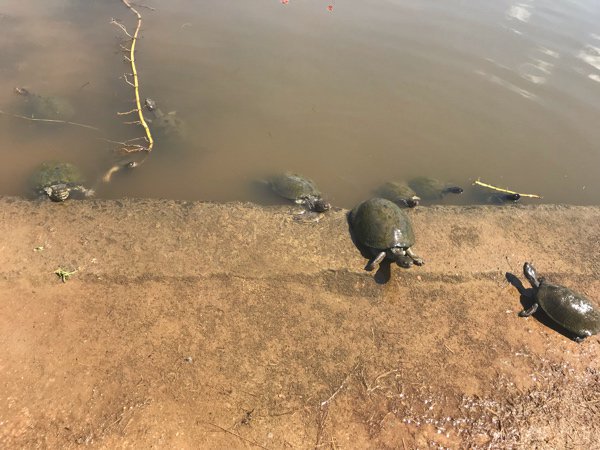Monkeys’ aggression caused by human inconsideration
Guests that behave irresponsibly by feeding or taunting vervet monkeys in Kruger, contribute to their becoming bolder and dangerous.
2 days ago
Mariana Balt
SKUKUZA – Too many visitors still ignore warnings not to feed animals in the Kruger National Park (KNP), thereby causing unnecessary trauma to others.
This was the warning from SANParks experts; Joep Stevens (general manager of strategic tourism), Danny Govender, Corli Wigley-Coetsee (ecologists) and Stephen Midzi (manager of biodiversity conservation); who provided a perspective on primate behaviour after two female guests were recently attacked by vervet monkeys at the restaurant area at Skukuza.
One of them had to receive a tetanus injection, and the wound on her lower left leg was treated by the local doctor.
They also accused staff alerted about the incident of apathy and disinterest.
The experts expressed regret about such incidents. With holidaymakers heading to the park during the festive season, they compiled guidelines for visitors.
All admitted that baboons and monkeys were a problem in several of the camps and picnic sites, where people and primates share space over extended periods of time.
Baboons and monkeys are intelligent, agile and strong, using overarching trees to access camps. At picnic spots they quickly learn to associate people with high-calorie food, something not part of their natural diet. They may target more vulnerable groups and aggressively try to get food through intimidation, charging and even biting.
Unfortunately some visitors still disregard the park’s rules by feeding animals.
“Even not clearing up your plate after a meal trains a primate to the ‘wonders of human food’, in terms of calories, sugars, easy access and low effort,” they said.
“Why would they forage when they can intimidate tourists for easy food?”
Kruger’s staff has managed rogue primates throughout the history of the park, but as Kruger attracts more tourists, increasing volumes offered more temptation.
“Most guests behave impeccably, but a few always behave irresponsibly by feeding or taunting wildlife, contributing to their becoming bolder and dangerous.”
Many approaches have been tried to curb primates, including guests being encouraged to keep belongings safely locked away.
The catch and release (relocation) process has been tried, but does not always work. “Primates have complex social structures, and relocating problem animals can have disastrous effects on the dynamics of the troops in those areas,” they said.
It can also pass on inappropriate behaviour or problem animals make their way back to their original territory. Their behaviour is often caused by collective learning, and removing culprits only sees others in the troop taking their place.
“The park acknowledges the problem, regrets a guest being bitten and is working towards a multi-pronged and sustainable approach to the issue,” the experts said.
“This includes responsible waste management and continuous education and awareness among visitors.”
They emphasised that every visitor needs to subscribe to a code of ethics and responsibilities towards the natural environment upon visiting the KNP and should adhere to it. “We in turn are taking urgent and considered responses to tackle the primate problem.
“Neither do we condone apathy and disinterest from staff, especially with regards to the safety of guests. We want them to feel safe at all times while in the park and to observe monkeys and baboons living free in their natural environment,” they concluded.
https://lowvelder.co.za/416548/monkeys- ... ideration/

